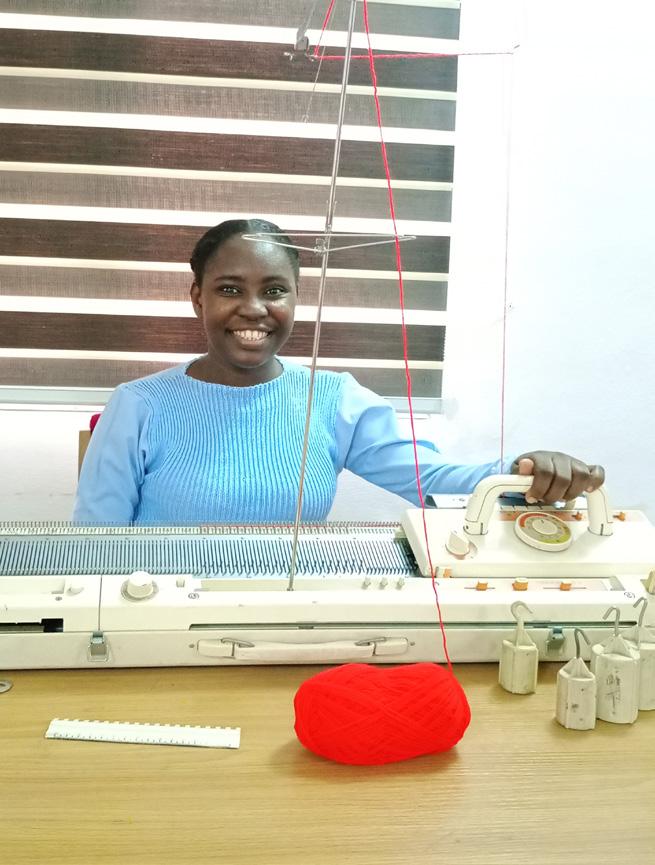
4 minute read
The Next Economy II
Mali, Nigeria, Somalia
DURATION: January 2020 - December 2023 TOTAL BUDGET: €7,254,809 – spent in 2020 €1,364,791 Project description
Advertisement
The aim of the Next Economy II is to break the vicious circle of poverty by enabling vulnerable but motivated young people to develop their talents and encouraging them to create their own future jobs by supporting them with their start-ups and by teaching them the right skills that respond to labour market demands, thus increasing their chances of obtaining and retaining a decent job. It is an established and mature employment and entrepreneurship programme that creates jobs and opportunities for young people in challenging and vulnerable contexts. Partners in six locations in Nigeria (3), Mali (1) and Somalia (2) are facilitated in creating opportunities for young people. By working with young people, business incubation hubs, employment organisations, the business community and the authorities, the ambitions and career goals of young people are aligned with the needs and opportunities on the labour market. This enables young people to take the step from education/training to decent work.
Target group
Young people aged between 18 and 35 who are disadvantaged on the labour market. Due to a lack of resources and networks they have no access to work, support for entrepreneurship or services. Most currently have no decent work or are underemployed and run the risk of social exclusion.
Sustainable Development Goals
Main activities and results in 2020
Due to Covid-19 we have only completed one training cycle instead of the two planned. • In total 7,000 young people in Mali,
Nigeria and Somalia/Somaliland registered for The Next Economy II, of whom 700 young people were ultimately
selected for Core Life Skills training. • Over 420 young people subsequently progressed to employability training, so they could eventually find a decent job in a company or institute. • 205 young people went on to follow entrepreneurship training to start their own company. • Various activities were carried out to fulfil the objective of preparing the corporate ecosystem in the programme countries as effectively as possible for the influx of young people on the local labour markets. • A number of projects were developed, including • A strategy to generate specific attention for gender-related issues involved in finding a job; • Anchoring the TNE model in the local ecosystems; • Establishing basic principles and guidelines related to the safety and integrity of participants, as well as local implementers within the programme.
Besides the above-mentioned reduction in training cycles the restrictions resulting from Covid-19 also meant that live training sessions were not always possible. As an alternative, training courses were brought online, which participants could follow on their laptop or phone. Two training cycles are planned in 2021. In addition, we are trying to catch up with part of the backlog from 2020. And we are starting to implement the above mentioned projects.
Impact
Young people in challenging and vulnerable situations have compiled their own career plan in order to take the step towards decent work and with that towards self-reliance and an independent, bright future.










